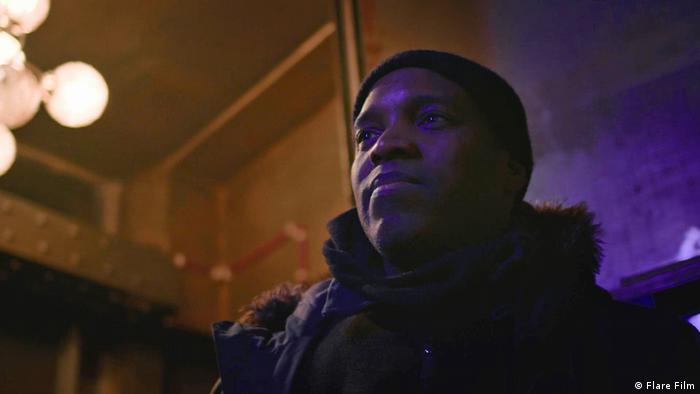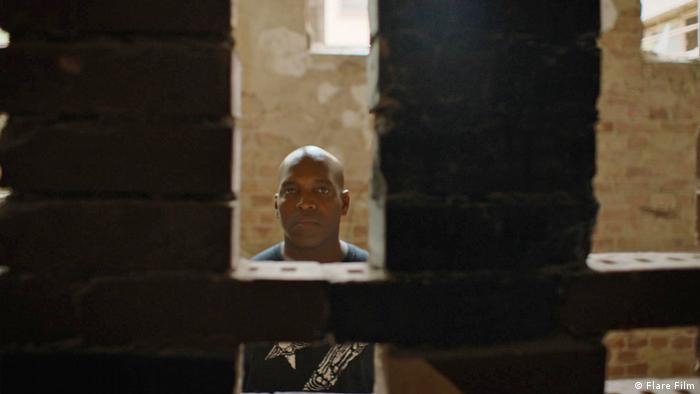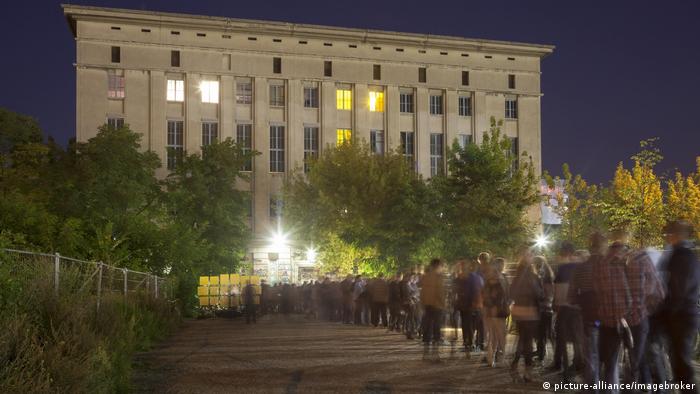As a US soldier Smiley Baldwin guarded the American sector of the divided city of Berlin, then the doors of the Berlin Clubs. The documentary “Berlin Bouncer” tells his story.

“I try to avoid this stiff, cramped type, the one that connects most with this Job,” says Smiley Baldwin in the documentary “Berlin Bouncer”, which has been running for this week in German cinemas.
Later, a man Baldwin is approaching at a Club entrance, and says to him: “You’re a legend.”
The documentary takes the audience on a journey through the recent history of Berlin, by portraying three legendary and powerful -doorkeeper of the night life. The Film begins with the fall of the Berlin wall and shows Baldwin as well as two other prominent doorman Sven Marquardt, the legendary Berghain colleagues, with the heavily tattooed face, and Frank’s artist, the famous former Clubbing Hot Spots, such as Delicious Doughnuts and King Size led.
The Film by David Dietls is a sketch of the biographies of the three bouncers in front of the bustling and vibrant backdrop of Berlin.
Each of the stories has to do with the Berlin wall. Smiley Baldwin landed at all only because of her, in Germany: He was stationed for the U.S. army in West Berlin.
The atmosphere in the city during the Cold war, put it: “I was a soldier for a weekend trip in Berlin – it must have been 1984 or ’85. It felt great.”
After that, he knew, that he wants to go back to Berlin. “I requested to be stationed here, and it worked. Within two weeks I knew this would be my new home. The whole atmosphere suited me as a new 501 Jeans.”
Stationed in the divided city, he served as a military policeman, and after in the American sector. He also had a combat command. To do this, however, it did not. “It’s never happened,” he says.

From the GI to the doorman: Smiley Baldwin
GI-cultural transfer
The US troops was created in the late 70s and early 80s club scene, the variety to the dreary West Berlin of the Cold war brought. The GI-discos fused different Genres: club music, Jazz-Funk, Rock and Roll, Soul, R&B, Hip-Hop or Motown-Hits. Bringing your favorite music, contributed, African American GIs, is essential to these sounds in Germany.
Smiley Baldwin was part of this scene, and until today, to preserve the cultural heritage of the GI-Discos. So, he organized the 2013 exhibition at the allied Museum in Berlin, which looked on the American music in Germany from the end of the 70s until the early 90s. In the 260 degree Club in Berlin, where Baldwin stands at the door, there are monthly GI disco evenings.
From the Army to the doorman
For the time after the military service, Baldwin had no Plan. However, although he moved not immediately from the military into the night, it was a seamless Transition.
“I wanted to try something else, but I came back on the safety. Underneath, I was able to present me something. That was kind of what I learned in the military and over the years had trained. It seemed to me, therefore, quite naturally, to go in the security industry; at the time I thought I could make it into a business,” he says.
And in fact, Baldwin has been involved in for over 22 years, a private security service for Clubs and events.
Party from Sunday to Sunday
In the more than two decades, he now works as a bouncer, he has witnessed how the night life of Berlin since the reunification has changed. At the time, he says, was the Underground scene is definitely more active. “From Sunday to Sunday what went on’. For a time I worked every day. And have fun doing it. A lot has changed since then, I’ve noticed.”
“In the Underground scene at the time in Berlin-Mitte and Prenzlauer Berg all together. We were our own friends. The people met every day – and not only at night. During the day there were events.”
Today, give it in the two parts of the city, no values of the club scene. Many of the legendary Party Spots, where Baldwin worked, such as the Rodeo, Cookies, or 103, are now closed.

The Cathedral of Berlin’s night life: The Techno Club Berghain survived – with his infamous snake
“The best of the space and time to get out”
In “Berlin Bouncer” revealed Baldwin a sensitive side, which speaks to the bouncer stereotype. “I don’t like to hurt the feelings of the people. And every Time I tell someone no, I’m well aware that I have hurt the feelings of someone. I want everyone to come to the Club and great music to listen to, but I’m through time and space limited, and have to try to make the Best of space and time.”
Because of the limited capacity of the city’s Clubs, he can’t grant anyone standing in the queue, access. In addition, it belongs to his duties as a bouncer, to compile a diverse mix of party people for the night.
Those who hope to come through the door, Baldwin only this advice: “Be yourself. Originality is what it is. Previously, if someone was a Punk, not went to H&M to buy a Punk Outfit. Punks Punks, because they made their own Outfits.”